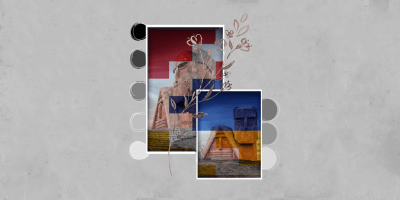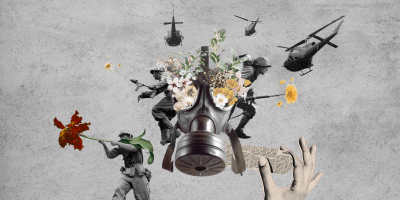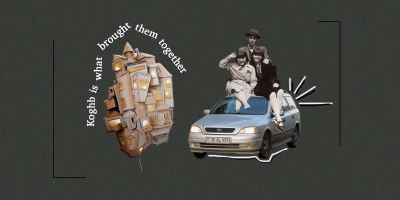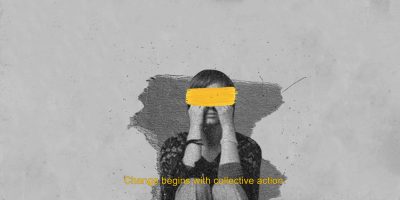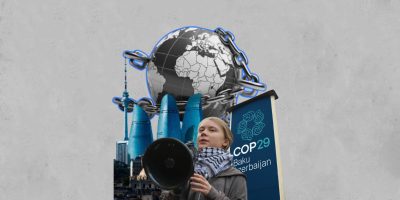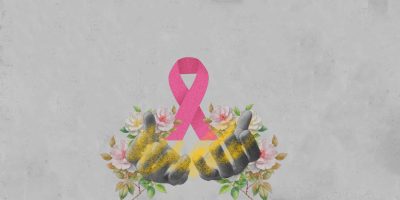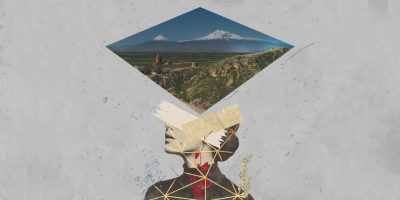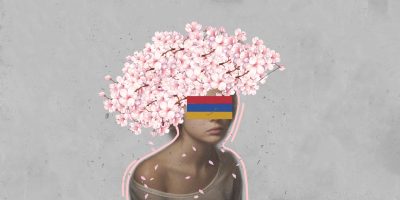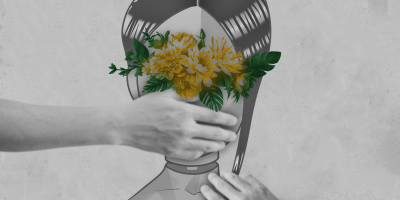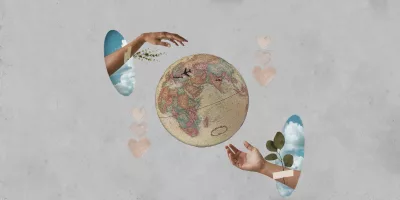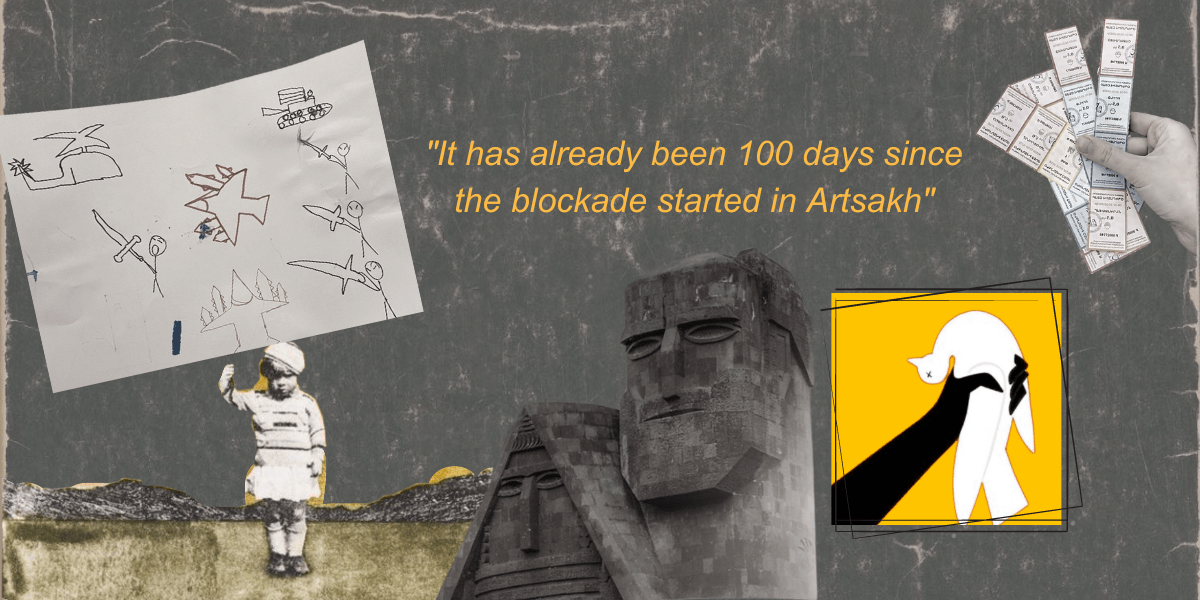
Since December 12, Azerbaijan has blocked the Lachin Corridor, the only road connecting Artsakh to the outside world, leaving Armenians of Artsakh trapped in freezing temperatures with no access to essential supplies like food and medicine.
Not only did Azerbaijan block the road, but they also caused occasional disruptions in the gas and electricity supply to Artsakh, leading to a serious humanitarian crisis. The Azerbaijani government disguises these inhumane actions as environmental activism against alleged illegal mining in Artsakh.
A dove they brought to the Lachin Corridor to symbolize their “peaceful” intentions was choked to death in the hands of one of the activists, ironically revealing their true motives behind the blockade. To us, Armenians, this image of an innocent dove being choked to death wasn’t far from reality at all. Rather it symbolized the Azerbaijani strategy of choking the Armenians of Nagorno-Karabakh until they were forced to flee their homes.
As a result of this blockade, people in need of immediate medical attention have been left in a critical situation because their transfer to Armenia is impossible. Furthermore, many families have been separated; some parents are in Armenia while their children are under blockade and vice versa. Azerbaijani “activists” only allowed occasional transfers of a few people to Armenia through the efforts of the Red Cross. They have been using these few occasions of transfer to convince the world that the Lachin Corridor is open and free for movement, which is not the case in reality.
Due to the Azerbaijani propaganda machine, the international community is unaware of this humanitarian crisis. If anything is published or talked about, it is done due to the immense pressure from the Armenian communities. Meanwhile, the whole world seems to be devastated by the tragedies resulting from the war in Ukraine and the earthquakes in Turkey and Syria. It appears not all humanitarian disasters receive the same attention. This is not to say that any of those tragedies are unimportant, but neither is the blockade in Artsakh.
Countries that have the power to change the situation only bring up the topic of human rights when it is convenient or advantageous for them to do so rather than as a consistent and genuine concern for protecting and promoting human rights. There is an unwillingness to take an action and force Azerbaijan to stop their policy towards Armenia. This directly conflicts with the values of a modern, civilized society that prioritizes diplomacy and peaceful conflict resolution.
With that said, we cannot overlook the international community’s efforts in this regard.
Many countries urged Azerbaijan to end the blockade. On Jan. 19, 2023, the European Parliament adopted a resolution on “Humanitarian consequences of the blockade in Nagorno-Karabakh.” The resolution reconfirms the situation as a humanitarian crisis and urges Azerbaijan to open the road and allow free movement and restoration of the connection between Armenia and Artsakh.
On February 22, 2023, the International Court of Justice ordered Azerbaijan to end the blockade and to take all necessary measures to ensure the safe movement of humans, cargo and vehicles along the Lachin Corridor.
Although these are critical political and legal steps, Azerbaijan continues its anti-Armenian line of action, which has only one objective – to force Armenians out of their homes and to ethnically cleanse Artsakh.
It has already been 100 days since the blockade of Artsakh. The supplies and resources are running short and the situation is worsening with every passing day. If the urgency of this situation is not enough for the international community to take more effective measures, then why else do these international organizations exist?

